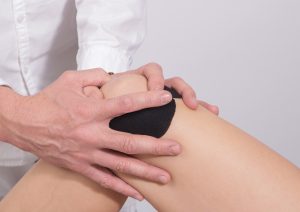Another study adds to the evidence that prp repairs arthritis of the knee
By Terrance Manning II, ND
At Oregon Regenerative Medicine, we see PRP repair arthritis of the knee everyday. Despite a wealth of published clinical evidence, many physicians remain skeptical of the efficacy of PRP.
Studies prove that PRP is a more effective treatment of knee arthritis than the standard of care.
A remarkable study was recently published in the journal Arthroscopy entitled “Efficacy of Platelet-Rich Plasma in the treatment of Knee Osteoarthritis: A Meta-analysis of Randomized Controlled Trials”. The authors analyzed ten placebo-controlled trials that had treated combined 1069 total patients. The combined studies all showed that PRP injections were significantly more effective than hyaluronic acid (HA) injections (the current standard of care). The combined data was clear: In OA of the knee, PRP proved to be significantly more effective than HA, and the benefits of PRP accumulated over time and were far more likely to provide relief of pain and improved function one-year post-injection.1
Hyaluronic Acid fails to repair worn-out knees.
While hyaluronic acid (HA) can help to lubricate the knee joint, it does not treat cartilage loss, the root cause of the osteoarthritis. Instead, HA only works as a lubricant, like the oil in your car. As we all know, adding new oil will not repair an old engine. Thus, many patients go down the conventional standard of care of repeated HA injections into their knees in hopes of preventing a knee replacement surgery. The problem is that HA does nothing to repair a worn knee.
PRP in effect stimulates the joint to grow the cells that allow the knee to begin producing its own lubricants again, much like it did before the osteoarthritis set in.
With PRP, patients have a completely different way to help them prevent knee replacement surgery. PRP works by delivering growth factors from one’s own blood in a concentrated form into their diseased joint to allow prp to repair arthritis of the knee. These growth factors work to stimulate the tissues of the joint to grow and heal and produce its own lubricants again, like it did before the osteoarthritis set in. From this stimulation, the root cause of the osteoarthritis is being addressed and in many cases halted or reversed. This is one reason why PRP is a superior treatment option for knee osteoarthritis.
Where can I get expert PRP treatment?
The physicians at Oregon Regenerative Medicine have specialized in PRP and other regenerative therapies for over 25 years. We offer a skilled evaluation, a proven PRP processing system and the expertise to inject the PRP where it needs to go. If you suffer from osteoarthritis of the knee or other joints, you should strongly consider a consultation for PRP treatment.
REFERENCES:
- Dai, WL; Zhou, AG; Zhang, H; et. al. Efficacy of Platelet-Rich Plasma in the treatment of Knee Osteoarthritis: A Meta-analysis of Randomized Controlled Trials. Arthroscopy; 12/22/2016.




